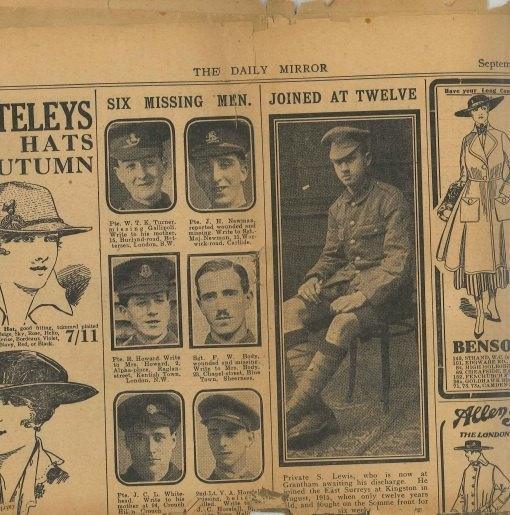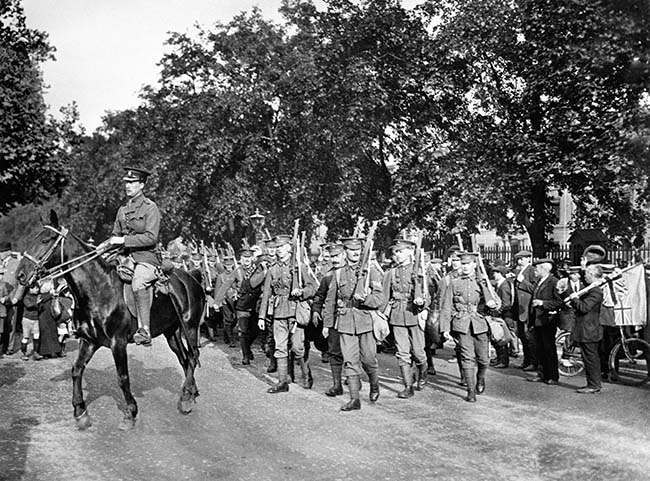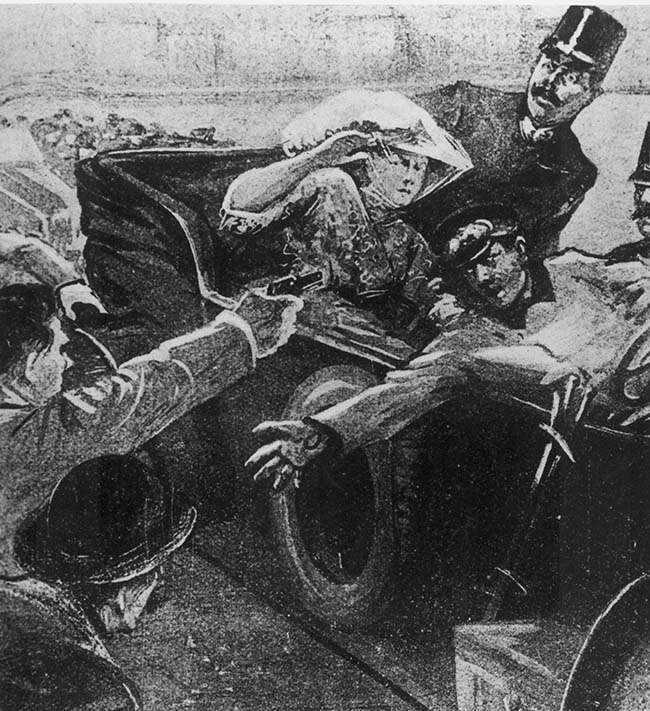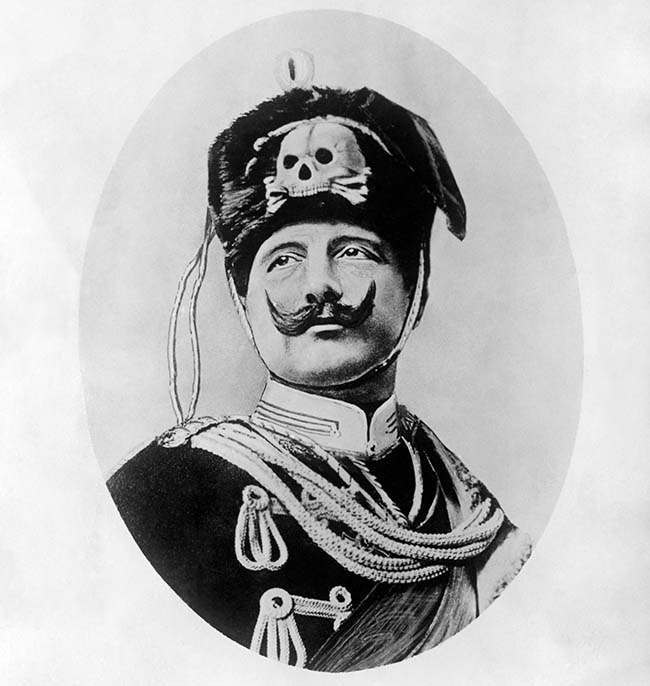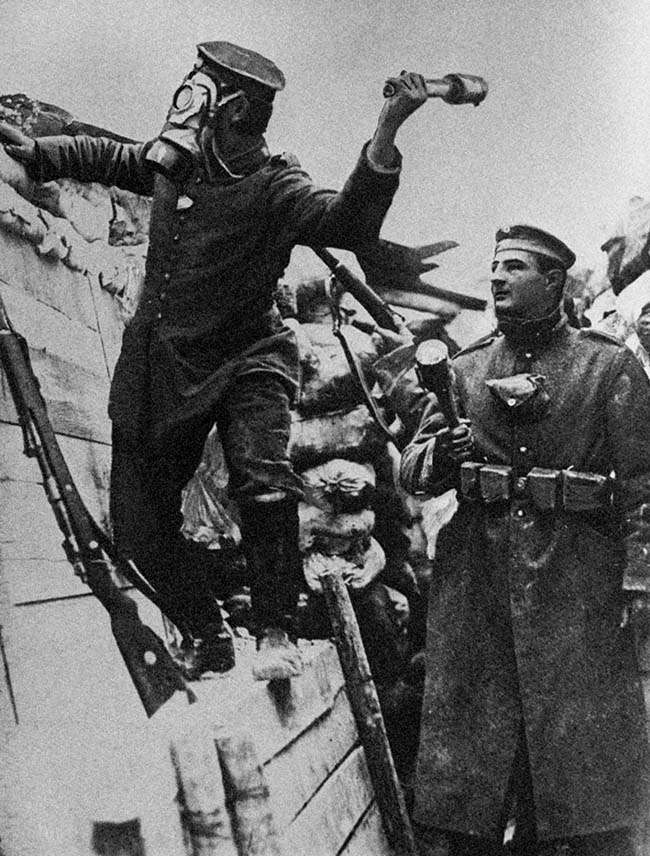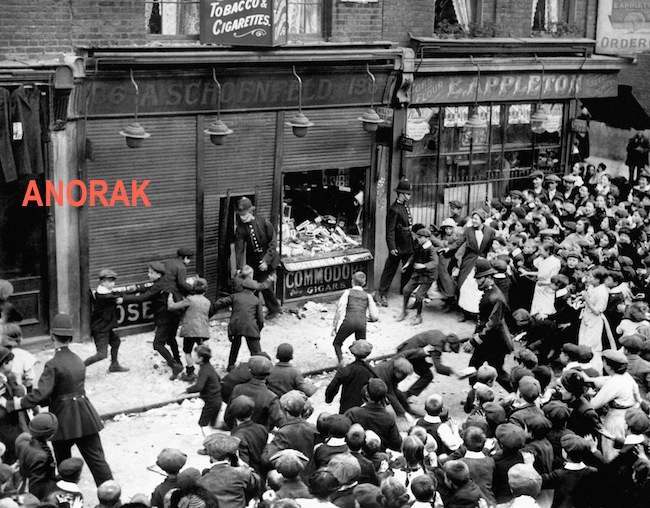Posts Tagged ‘First World WAr’
Zero Oscars, Two World Wars And One World Cup: An Evening’s TV With Some Angry White Men
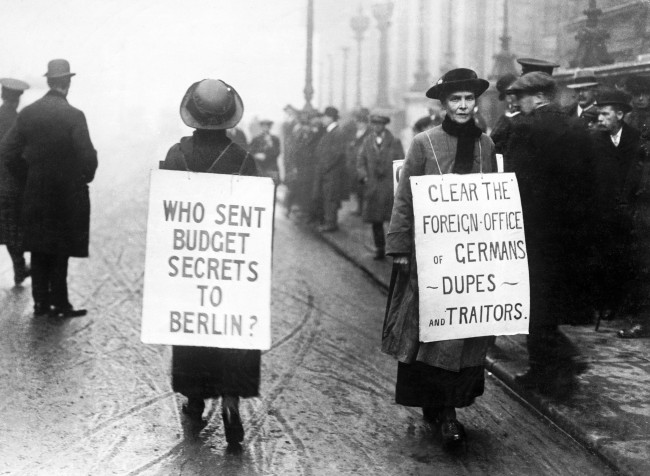
Two patriotic women protest with sandwich boards outside the Reform Club, where a meeting of the Liberal Party was being held. The women allege that there are “Germans, dupes and traitors” in the Foreign Office and that some one sold secrets regarding the annual budget to the Germans.
Mic Wright’s Remotely Furious
I DIDN’T watch The Oscars. It’s not simply that they’re held at stupid o’clock in the morning and carry the risk of exposure to Ryan Seacrest and, even worse, the Ronseal-tanned visage of Piers Morgan, it’s that there’s no surprises anyway. The Oscars are like almost ever Premier League match featuring one of the ‘Big Four’ and teams like my beloved Norwich City: the result is practically predetermined and by the time the prematch analysis is over – hours and hours of the stuff – you’re too bored to bother with the big event.
Read the rest of this entry »
Posted: 4th, March 2014 | In: TV & Radio | Comment
Private Sidney Lewis: World War I’s Youngest Soldier Was 12 Years Old
PRIVATE Sidney Lewis enlisted with the East Surreys at Kingston in August, 1915. He would go on to fight in the Battle of the Somme with the 106th Machine Gun Corps.
Sidney Lewis was 12 years old.
Read the rest of this entry »
August 4 1914: The United Kingdom declares war on Germany ‘for a scrap of paper’
ON August 4, 1914, Germany invaded Belgium. In response, the United Kingdom declared war on Germany. In a Treaty of 1839, Britain had promised to defend Belgium.
“For a scrap of paper, Great Britain is going to make war?” said the amazed German Chancellor Bethmann-Hollweg.
At once, the Government took control of all railways. Admiral Jellicoe was placed in supreme command of the Home Fleets. The King declared:
“At this grave moment in our national history I send to you and, through you, to the officers and men of the fleets, of which you have assumed command, the assurance of my confidence that under your direction they will revive and renew the old glories of the Royal Navy, and prove once again the sure shield of Britain and of her Empire in the hour of trial.”
Germany was now at war with the UK, Russia, France and Belgium. Germany had grand plans; ambitions triggered by the event in Sarajevo on June 28, 1914, when the heir to the throne of Austria-Hungary, Archduke Franz Ferdinand, was assassinated.
Photo: An artist’s rendition shows the assassination of Archduke Franz Ferdinand of Austria-Hungary and his wife, Czech Countess Sophie Chotek, during their visit to Sarajevo, Bosnia, on June 28, 1914. The assassin, Serbian nationalist Gavrilo Princip, left, of the group Black Hand, was captured.
Prime Minister Herbert Henry Asquith made a speech. The King of Belgium had made a call for help.
“Simultaneously, we received from the Belgian Legation in London the following telegram from the Belgian Minister for Foreign Affairs: ‘The General Staff announce that territory has been violated at Verviers, near Aix-la-Chapelle. Subsequent information tends to show that a German force has penetrated still further into Belgian territory.’
“…we cannot regard this as in any sense a satisfactory communication…
“We also received this morning from the German Ambassador here a telegram sent to him from the German Foreign Secretary: ‘Please dispel any distrust that must exist on the part of the British Government with regard to our intentions by repeating, most positively, the formal assurance that, even in case of armed conflict with Belgium, Germany will not, under any pretence whatever, annex Belgian territory. Please impress upon Sir Edward Grey that the German Army could not be exposed to a French attack across Belgium, which was planned according to absolutely unimpeachable information’…
“I have, to add this on behalf of the Government: we cannot regard this as in any sense a satisfactory communication. We have, in reply to it, repeated the request we made last week to the German Government that they should give us the same assurance with regard to Belgian neutrality as was given to us and to Belgium by France last week. We have asked that a reply to that request and a satisfactory answer to the telegram of this morning, which I have read to the House, should be given before midnight.”
Photo: Kaiser Wilhelm II as the ‘new King of the Belgians’.
Later, the Foreign Office announced:
Owing to the summary rejection by the German Government of the request made by His Majesty’s Government for assurances that the neutrality of Belgium would be respected, His Majesty’s Ambassador in Berlin has received his passport, and His Majesty’s Government has declared to the German Government that a state of war exists between Great Britain and Germany as from 11pm on August 4.
Viscount Edward Grey, the Foreign Secretary, famously said in 1914: “The lamps are going out all over Europe; we shall not see them lit again in our time.”
By December 1914 opposing lines of trenches extended from the English Channel to the Swiss frontier. This was hell on earth.
Photo: German soldiers wearing gas masks and throwing hand grenades.
Posted: 4th, August 2013 | In: Flashback | Comments (2)
Flashback: Anti-German demos break out in London
FLASHBACK: May 13, 1915 – Anti-German demonstrations in Chrisp Street, Poplar, London in response to the sinking, on the 7th May of the liner ‘RMS Lusitania’ by a German submarine. Throughout the war, riots directed against those of German nationality or ancestry frequently broke out in crowded urban areas. Anti-German sentiment ran so high that in 1917, Prince Louis of Battenberg, a minor German Prince and a former British Sea Lord after 40 years service in the Royal Navy, was forced to change the family name to Mountbatten…
The owner of the store in the photo was Adolph Shoenfeld. He changed his name to Adolph Sheffield. Yep, he kept the name Adolph…
Read the rest of this entry »
Posted: 7th, June 2012 | In: Flashback | Comment (1)

